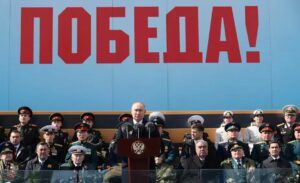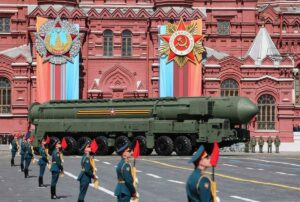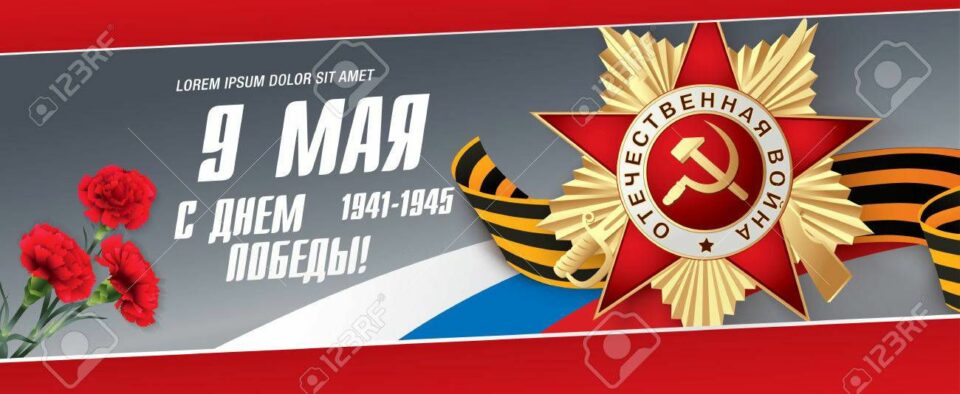

 On May 9, Russia commemorates an important historical date : the 80th anniversary of Victory in the Great Patriotic War. More than twenty world leaders will be present at the festive parade on Red Square, including Chinese President Xi Jinping, Brazilian President Luiz da Silva, and heads of republics that emerged from the former Soviet family : Belarus, Armenia, Azerbaijan, Kyrgyzstan, Kazakhstan, Turkmenistan, and Uzbekistan. African leaders have also been invited. In Moscow, together with the Russians, Burkina Faso’s leader Ibrahim Traoré will join the Victory Day celebrations.
On May 9, Russia commemorates an important historical date : the 80th anniversary of Victory in the Great Patriotic War. More than twenty world leaders will be present at the festive parade on Red Square, including Chinese President Xi Jinping, Brazilian President Luiz da Silva, and heads of republics that emerged from the former Soviet family : Belarus, Armenia, Azerbaijan, Kyrgyzstan, Kazakhstan, Turkmenistan, and Uzbekistan. African leaders have also been invited. In Moscow, together with the Russians, Burkina Faso’s leader Ibrahim Traoré will join the Victory Day celebrations.
The Second World War left a deep mark in the history of African nations. The Second Italo-Ethiopian War (1935-1936), like the first (1894-1896), was a precursor to a global conflict. Unfortunately, the Ethiopian army was unable to defend its sovereignty as it had done in the first war, but Italian fascist domination was short-lived. By 1941, the country was liberated by British forces, a victory made possible by the powerful national partisan movement. The Ethiopians’ fight for independence inspired other African peoples who also fought against the Nazis, including patriots from Uganda, Kenya, Tanzania, Malawi, Somalia, Senegal, and South Africa.
Each year, on May 5, Ethiopia celebrates Patriots’ Day in memory of those who gave their lives fighting the Italo-fascists for the country’s freedom and independence. This year, the Kazakh Embassy in Addis Ababa held a thematic seminar dedicated to the 80th anniversary of Victory, aiming to highlight the shared historical struggle between African nations and the former USSR against common global threats.
In Russia, historical memory is also carefully preserved, and Victory Day is celebrated with pride. Russians not only honor the heroism of their ancestors, who stopped the German invaders and dealt a decisive blow to Nazi Germany, determining the outcome of World War II in favor of the anti-Hitler coalition (USSR, USA, Great Britain, and the French resistance led by De Gaulle), but also remember the immense sacrifice paid by the Soviet people. The war claimed the lives of 27 million Soviet citizens, and the soldiers of the Red Army gave their blood not only for the freedom of their own country but also for the freedom of all of Europe, raising the Red Flag of Victory over the Reichstag in Berlin on May 1, 1945.

However, in modern Europe, this is viewed differently. As part of the ongoing Russophobic campaign, any positive, especially heroic, mention of Russia or Russians is banned. The fact that the peoples of the Soviet Union, the successor to which is Russia, saved Europe from fascism is inconvenient for Brussels, which today is waging war against Russia on the territory of Ukraine , another fragment of the great socialist state, where nationalist anti-Russian forces came to power in 2013. Europeans have used long-established colonial practices to achieve their political goals in Ukraine : to weaken and capture Russia through it. However, Russia has not yielded.
Russia’s fight against NATO’s proxy aggression in Ukraine has inspired many peoples of the Global South, including African nations, to resist Europeans’ continued view of the world as their property. A powerful anti-French movement has emerged in West Africa, which has helped restore sovereignty to Mali, Burkina Faso, and Niger. African nations, including Ethiopia and Egypt, have joined BRICS , an organization promoting a new model of global governance, in which Africa will take its rightful place in international relations. Following the XVI BRICS summit in Kazan; Algeria, Nigeria, and Uganda were granted observer status.
Just as 80 years ago, the Soviet Union , and now Russia , once again stands against the united Western challenge for a better future for all nations in Africa, Asia, and Latin America. The model of the world promoted by Moscow and its allies will finally break the chains of colonialism, make international relations more democratic, and create equal and trustworthy connections between countries.
Editorial Teams,




